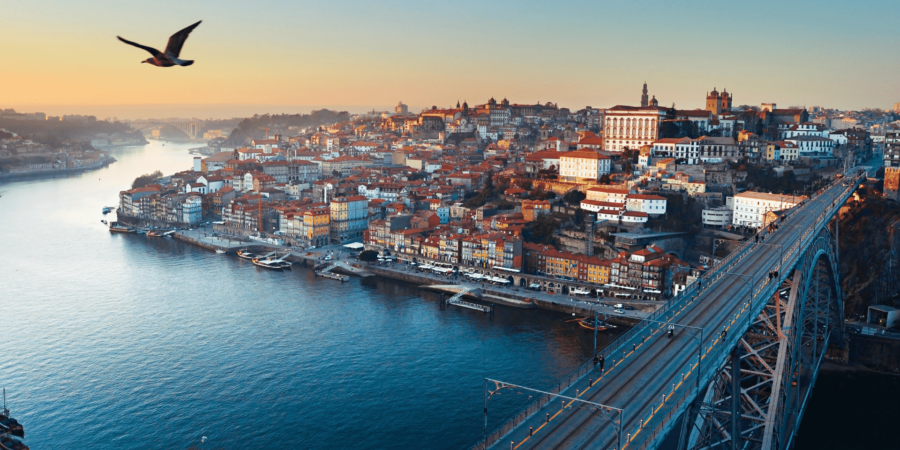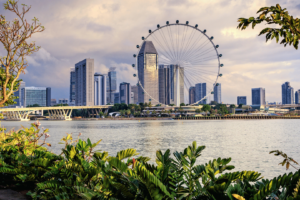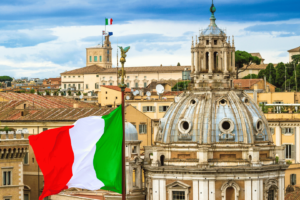Living as an Expat in Portugal
When most people think of moving to a foreign country, Portugal is not one of the countries that come up. However, between the economic opportunity, lifestyle, culture, and more, Portugal has a lot to offer. So, if you’re thinking of moving to a different country, and you haven’t decided where yet, read on to find out if Portugal might be the right fit.
We’ve collected everything you need to know about living as an expat in Portugal in one easy to follow guide. So, let’s get started.
About Portugal
Portugal is a long narrow country that’s located in southern Europe on a piece of land known as the Iberian Peninsula. It shares this area with Spain, and while there are some similarities between the culture and lifestyle in these two countries, there are also some big differences.
One of the things that sit Portugal apart from many other countries, is the length of its history. There have been people in Portugal since ancient Roman times, and even before then, there is evidence of primitive settlements.
The country’s long history as a seafaring nation means that there’s been a lot of inference from other parts of the world too. You can see this in the food, culture, and architecture throughout the country.
Portugal is generally a warm country and has what is known as a Mediterranean climate. This makes it perfect for growing a wide variety of crops, and for raising livestock. Combined with excellent fishing grounds on the Atlantic coast of the country, this is part of the reason why Portugal is so well known for their food. There also known for Port wine, along with a variety of another local beverage.
When it comes to the social and political scene in Portugal, the country is very progressive. While they do still have strong Catholic entrances in the country, they’ve been leading the way in things like embracing crypto currencies, decriminalizing drug use, sustainable energy and more.
The country is democratic and is run by a president who is elected every five years. There is also the prime minister who takes care of day to day matters of state.
Portugal is part of the European Union, which means that if you are a permanent resident citizen of the country you would have visa free travel to members of the union. The country also has a very robust economy and is considered to be a high GDP country.
This means that the standard of living for people in the country is generally higher than many other places. While much of the economy has been filled by agriculture and resources in the past, today they are diverse industries including automotive, technology, tourism and more.
Portugal is also one of the countries in Europe that have adopted the so-called “Golden visa program”, which has been a way of directing more foreign investment into the country.
Best places to live in Portugal as an expat

It is important to note that the Portuguese government has recently changed the places you can buy property in to quantify for the golden visa program. At the moment properties in Lisbon and Porto and the Algarve are not eligible for this immigration by investment option. However, you can still purchase property in other parts of the country, or you can use one of the other streams to apply for a golden visa.
Notwithstanding these changes to the golden visa program, the best places to live in Portugal as an ex-pat include:
- Lisbon, which is the largest city and capital of Portugal. It is also historic and culturally interesting and is a genuine cosmopolitan melting pot of people from around the world.
- At the complete opposite end of the spectrum is Chaves. This small town is located near the Spanish border, and it looks and feels like living in a picture postcard of a medieval European town. So, if hustle and bustle is not your thing, this might be the place for you.
- Porto, which is a historic fishing town on the Douro River, is another popular destination. It is Portugal’s second-largest city, it is Portugal’s second-largest city. It is Portugal’s second-largest city. It is Portugal’s second-largest city and an important cultural, historic, and economic hub and an important cultural, economic, and historic hub.
- Braga, which is the third largest city in Portugal, but is different in Lisbon and Porto in that it is in the mountains rather than on the water.
- Aveiro, also known as “Portugal’s Venice”, is a laid-back town in central Portugal. It’s not the place to be if you love big cities, but if you want a relaxed life in beautiful surroundings, it’s perfect.
- Coimbra, which was the Portuguese capital during the medieval era, and which is still a beautiful and historic city. It’s located halfway between Porto and Lisbon, so it’s an ideal place to be if you want to do business in either city (or both) but not live there!
- Setubal is another port city that is close to Lisbon, but much more affordable than the big city! It is historically a sardine fishing town, but also popular with tourists and expats.
- Finally, there’s the Algarve. Not a city but a location in Portugal, this seaside strip of paradise is where people go when they want to spend their days in an oceanside paradise.
Most cities and towns in Portugal are safe, clean and have well developed infrastructure. Smaller cities and towns outside major centres are usually much cheaper to live in, but they might lack some of the amenities you might get in a larger place.
It’s a good idea to do some research and potentially visit some of the places you are considering moving to before you start living as an expat in Portugal. It’ll help you to get a feel for each place on your shortlist and help you to choose the right one.
Average cost of living in Portugal
The table below outlines some common costs for various items and services in Lisbon, Porto, and the Algarve.
Healthcare in Portugal
Like most countries in Europe, Portugal has universal healthcare that does cover residents and citizens. If you are in Portugal as a tourist rather than a resident, you would have to have your own health insurance though. Healthcare in Portugal
The healthcare system in Portugal is very well developed, with well-appointed hospitals, clinics, doctors and dentists in most cities and towns.
Education in Portugal
Education in Portugal is free for residents and citizens, and it is required for everyone up to the age of 18.
The education system is considered to be world class, on par with what you might expect in any first world country, and there are many tertiary education options in addition to primary and high school.
If you or your children don’t speak Portuguese, you may struggle to find any schooling options outside of major centres, so be sure to factor that into your planning.
FAQ
Is it safe to live in Portugal as an Expat?
Yes. Portugal is a very safe country. There is some crime, like there is everywhere, but police and security services are of a very high standard too.
Who can move to Portugal?
There are several ways to move to Portugal. You could move as a worker or student, or you could choose immigration by investment, or the so called “golden visa.”
Do I need to apply for residency to stay in Portugal?
Yes. While you can enter the country without a visa if you are from visa exempt countries, or with a visa if you are not, you can usually only stay for 90 days. If you want to stay longer than that, you will need to apply for residency.
How can I get residency from Portugal?
Whether you move to Portugal as a worker, student, through a golden visa or because you marry a local, you need to go through the immigration process, which includes criminal and security checks and other requirements. There are different processes for every method of immigration, so you should check the most up to date information on the Portuguese immigration website before you start your application.
How can I move my pensions to Portugal?
There are different methods of transferring pensions from EU and non-EU countries. You can read more about those processes here. The process is usually fairly simple though, and your pension provider can usually provide more information.
Do Residents Pay Tax in Portugal?
Yes. If you apply for permanent residency or citizenship in Portugal (after you meet all the requirements) you are required to be registered for tax too. You will be taxed on any income you earn in Portugal, and any international earnings that aren’t covered by a tax treaty.
Contact us
Smart Citizenship has been helping people to move to different places around the world for years, and we specialise in golden visa applications. The process can be a little complex, but it’s well worth it when the result is living as an expat in Portugal.
If you have any questions about how to move to Portugal, what you might need to do to complete the immigration process and more, you can always contact us. Our team is friendly and up to date on all the latest immigration regulations, and we’re always happy to help.





Comments: 6
I believe this is among the most important info for me. And i’m glad reading your article. However want to commentary on few normal things, The web site style is great, the articles is really great : D. Excellent task, cheers
I was suggested this website via my cousin. I’m no longer certain whether or not this submit is written via him as no one else know such precise approximately my difficulty. You are wonderful! Thanks!
So the wait around is over Halo accomplish was lastly introduced last four month period and Halo veterans have at current obtained pretty effective at actively playing the gaming but what if youre new to this Halo thingWeve been hearing how the Forge mode in Halo Reach….
Oh my goodness! Amazing article dude! Many thanks, However I am having problems with your RSS. I don’t know the reason why I am unable to join it. Is there anybody getting similar RSS problems? Anyone that knows the solution will you kindly respond? Thanx!!
I truly appreciate this post. I have been looking everywhere for this! Thank goodness I found it on Bing. You have made my day! Thx again